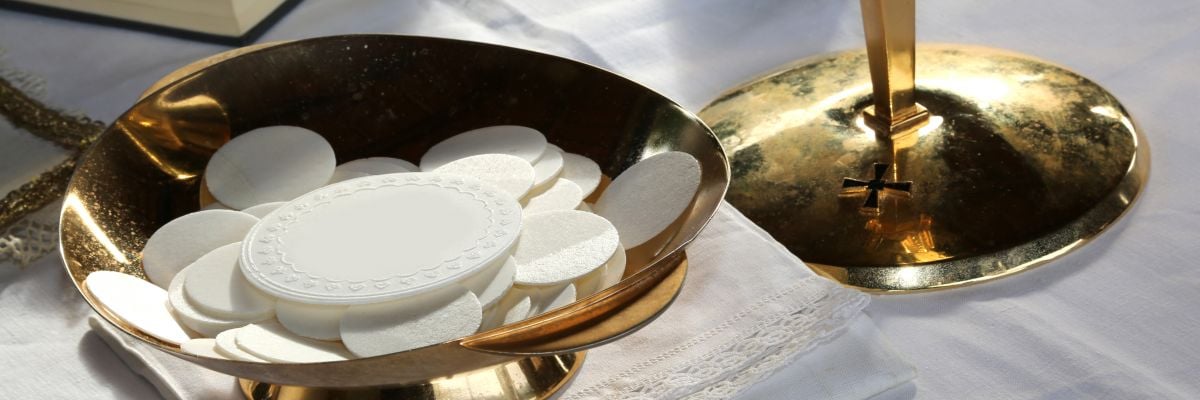www.catholic.com/qa/must-a-pyx-be-metal

Question:
Does a pyx have to be made of metal?
Answer:
No. Generally speaking, sacred vessels are to be made from precious metals (GIRM 328). However, in the United States, sacred vessels that hold the host “may also be made from other solid materials that, according to the common estimation in each region, are precious; for example, ebony or other hard woods, provided that such materials are suited to sacred use and do not easily break or deteriorate” (GIRM 329).
Enjoying this content? Please support our mission!Donatewww.catholic.com/support-us



